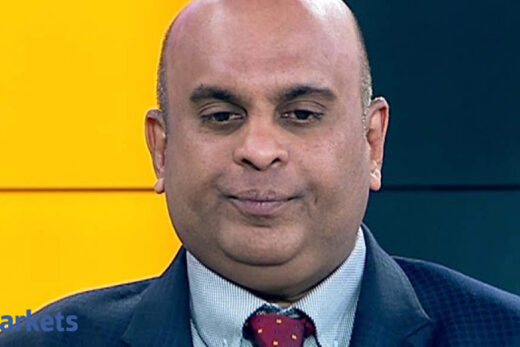How excited are you about the rerating of India story post the Budget? The FII activity seems to be indicating that for a market which for the longest time has competed with China and Brazil, India clearly is on a pedestal positioning.
Yes, I think we turned quite positive about six months back and our stance has been quite overweight India. There are a variety of things. One is things normalised much faster for India compared to the rest of the world. The second is the rate environment has been benign. Currency has been stable and that kind of gets a lot of money into India. The good part of the story is that the government finally thought that fiscal prudence can be put aside for a while and maybe get the reflation trade back. Government spending is key and critical and that in short, makes India a good investment destination. We have been far more positive than we have been sometime in the past.
How would you talk about the risk reward ratio for a market like India? Is it time to get worried about the levels and valuations or does this market have a long way to go?
Let me put this in context. At the risk of sounding very old, it reminds me of 2004 to the extent that when the bank rates were pretty low and the earnings recovery was coming through. It can sustain for a fairly long time and when I say that, I am looking at a typical environment that we are sitting in today. Maybe at a point in time, the valuation will look high or low, but the way we think about it, over the next three years, you could be earning a CAGR of about 25% which is quite spectacular. At that point in time, it might look expensive.
There are three reasons why we think this has got legs and at a point in time it can look expensive. One, the rates are low and very attractive; corporates are clearly benefiting from the entire rate cycle and this could lead to the next level of capex. The private sector capex can come through because of the benign rate environment.
Two, the banks are now ready to support the capex if it comes through because they have washed their sins and capitalised themselves and are ready to go out and disburse more money and put some risk on the table.
And the third thing is that the currency has been very stable and that gets foreign currency and supports the entire cycle. The operating leverage currently is at about 70-72% across manufacturing and other sectors. We Indians are very sticky with costs and very fussy about profligacy. We tend to be quiet and if the operating leverage goes up from 70% to 80% , you will see that the cash flows and the profitability will rise quite dramatically and disproportionately.
This could be a comeback year for the markets in terms of earnings. But you can see this follow through and propel itself as more of a self-fulfilling prophecy over the next two-three years. The earnings could sustain over the next two-three years and could see a CAGR of about 25%.
Lots of money managers are now bracing to benefit from cyclical recovery in earnings. The template which you have indicated may actually play out and operating leverage kick in and earnings recovery starts but that is like a common trade now.
Yes things will get consumed. People will believe that everything is priced in and more as that is the classic bull market. We worry that this may end and may not sustain. It is good to be paranoid. It is good to be careful. But are our valuations discounting a three-year CAGR of 25%? Probably not. What can propel the numbers that can surprise over the next 12-24 months given other things remain constant? There are issues which are lurking in the corner which can possibly derail the entire thing; the inflation expectation in the US has been rising, agri commodity inflation has been rising in India. Inflation is the joker in the pack. I agree it is more templated and it is possibly now even discounting the operational leverage.
We are also starting to see participation across segments, across different tiers, midcaps and smallcaps and also continued highs on those flows.
Flows can cause a fair bit of bubble or excesses. But we stay paranoid about everything and keep an eye on the IPO market. Bankers are the classic guys who work forward. Most of the time, they work for themselves. They price assets and create that little artificial demand in the system and people fall over each other to make money next morning. Those bubbles and bursts and hurts and injuries can disrupt the market.
But having said that, the institutional investors have been careful but it is the retail investors who get hurt. Bull markets typically see sharp, deep and savage corrections which can happen when valuations kind of run ahead of themselves.
When it comes to technology, I am going to club telecom and IT. What is the opportunity that you see going forward for the heavyweights in tech space?
We were a bit early in the trade and we were sitting on both IT and pharma when they started rising. Luckily for us, we were able to buy a lot, but at this point both IT and pharma are getting ‘close to done.’ When I say close to done, I do not see IT and pharma earnings compounding the way the market perceives or possibly imagines. So we check an interesting measure called market implied growth rates. The market implied growth rates for both IT and pharma are clearly pricing in a lot more than what reality would possibly be in their multiples. So we are very cautious and possibly over the last quarter or so, we have been taking money off the table in both IT and pharma. We have been more focussed on the inward looking local, domestic plays.
Do you need to tactically realign your portfolios, not just across sectors but even in terms of market caps? Do you need to ease off from the largecaps or allocate higher to mid and smallcaps right now or be market cap agnostic and be stock specific?
It is kind of a cliché that India is a stock market where stock pickers make money and that is fine. We are reasonably agnostic about market cap but what we are very fussed about is cash flows and operating leverage and also modes in businesses. One can make a tactical call saying that oh!
run up! has run up, whatever be the name. In our case, if the call has to be made, one has to think about whether we will continue to remain overweight India. We continue to remain overweight the front line names and also a sprinkle of mid and smallcap names which helps us to get that little beat up. They can be quite fierce when they turn around. Tactically you could take money off the largecaps, but the transaction cost for us is very high for us to jump in and jump out and are not very flustered at this point in time though we are very aware that the valuations appeared to be quite full.
When you earlier said that you are looking inward and at more domestic stories, where within the India theme do you find most preferred bets? Digital is now becoming a very large pool and it is not just restricted to services?
The valuation or expectation of the new age digital companies are close to outrages. I do not know how they think about valuation for those companies. You can contrast them with the Chinese digital companies which have done extremely well. There are Pinduoduo, Meituan and tonnes of others. They have consistently delivered and delivered really well. I am not sure whether the companies that are coming up in India are all in that same bucket of competence of the Chinese equivalent. It is good to be a little careful about the pipeline of initial offers. The digital world is interesting. A lot of things are happening there — disruptors, fintech, and platforms. India is clearly making a mark but I suspect you have to keep an eye on this space and look out for valuation rather just buy because your neighbour is buying.
Would you be tempted to look at PSUs which traditionally global investors have avoided in favour of private banks? The government is serious about privatisation this time and is saying will retain ownership only in strategic sectors.
The government has always been serious about PSUs. They only take money out of them and minority shareholders have always got short changed. I have made several representations to the government saying that minority shareholders are important because you come to them for money as well. I am not convinced that the government thinks that minority shareholders are an important element to any decision making for PSUs. Having said that, I can see some of these oil refiners are very cheap, very efficient and are possibly beginning to see the privatisations staring at them. That can change the entire landscape.
To answer the question whether PSUs are in our radar, the answer is yes and the answer is where the government holding is down to threshold level from where it can only privatise or become not a majority shareholder. We will evaluate PSUs where the government interference is lower and they do not think that minority shareholders are a vent in the overall shareholder book.



